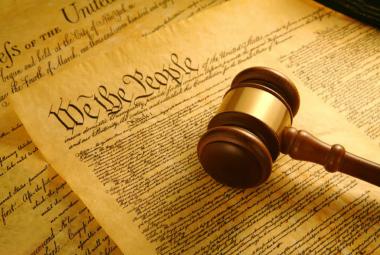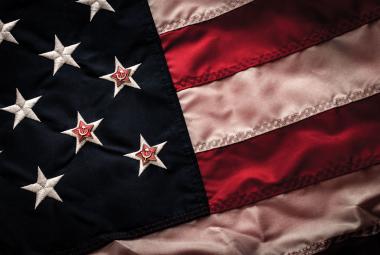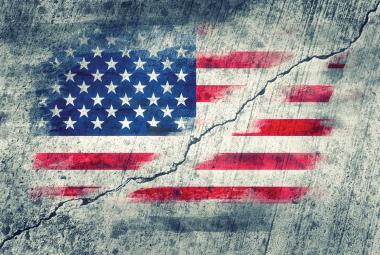Obstruction of justice. Abuse of presidential powers. Failure to comply with congressional subpoenas. These were the three general Articles of Impeachment that the House Judiciary Committee approved against Richard Milhous Nixon in July 1974.
The committee also linked Nixon and certain members of his administration to charges of conspiracy, perjury, concealing evidence, offers of pardons to convicted felons, hush-money payments, and misuse of the Federal Bureau of Investigation and the Central Intelligence Agency.
Nixon avoided a trial of impeachment in the U.S. Senate by resigning the presidency on August 9, 1974.
Eighteen years later, William Jefferson Clinton, governor of Arkansas, became the 42nd President of the United States and won reelection in 1996.
Since he first took the oath of office in 1992-swearing to "faithfully execute the office of the President of the United States [and] to the best of my ability, preserve, protect and defend the Constitution of the United States"-President Clinton and his administration have been beset with scandal.
I spent a weekend with Bob Barr (R-GA), a former federal prosecutor, who is pursuing an inquiry that is likely to lead to impeachment proceedings.1
An independent counsel and 11 congressional committees are investigating wrongdoing in the Clinton White House.
Three other independent counsels have investigated Clinton cabinet officers.
More than 30 top administration officials have been investigated, indicted, convicted or forced to resign.
Several close associates and former business partners of Bill and Hillary Clinton are in jail. One "committed suicide." Three have pleaded the 5th Amendment against self-incrimination. At least three others have left the country.
A federal grand jury has named White House Deputy Counsel Bruce Lindsey an unindicted co-conspirator. The same grand jury is investigating the President and First Lady themselves for possible perjury, fraud and obstruction of justice.
This is the presidency Clinton claimed in 1992 would be "the most ethical administration in the history of the republic."
The scandals have included Whitewater, Travelgate, Filegate, and the fund-raising scandals that deepen daily.
The latest public disgrace involves evidence of breaches in National Security, Communist Chinese efforts to influence a U.S. election, money laundering, and illegal fund-raising by the Democratic National Committee, the Vice President, and perhaps even the President and First Lady themselves.
The White House itself has been marketed for campaign purposes, amidst allegations of shakedowns, manipulation of the FBI, obstruction of justice, perjury, hush-money payoffs, espionage and international intrigue and bribes for domestic and foreign policy changes.
It is not for us to elaborate on the details behind these allegations. But it behooves every serious American to find out what is going on. The survival of the Republic requires it.
Does Character Matter?
In the early days of the 1992 presidential campaign we learned that Bill Clinton had betrayed his draft board and his marriage vows.
Not to worry, the liberal establishment constantly assured us, these questions of personal morality and integrity were irrelevant in determining whether someone would betray the trust of office if made President of the United States.
Five years later we have relearned a truth that was fundamental to the founders of this country: Character does matter.
From the very moment Bill Clinton stepped foot in the Oval Office, he, and subordinates working in his name, apparently began abusing the powers of the presidency to serve narrow personal interests.
He fired and slandered loyal public servants at the urging of cronies who were looking for lucrative government contracts.
He illicitly obtained the raw FBI background files of former, and perhaps future, political adversaries.
He used the office of the President, the White House itself, and senior administration policy makers as bait in a scheme to attract campaign contributions from corporations, individuals, and even foreign governments with an interest in federal policy.
He routinely provided White House access and face-to-face meetings with agents of a foreign corporation that was closely tied not only with the Chinese government but with an agency of that government known for its espionage activities.
On several occasions he made policy decisions that by their timing and nature seemed tied to contributions solicited by his political operatives.
He has provided testimony in federal court that has been contradicted by three people-including a former judge, a state trooper and Clinton's own former business partner. The fourth person who has reason to know whether his testimony was truthful is now in federal prison on contempt of court charges for refusing to answer the simple question of whether or not the President of the United States is a liar.
Three of the President's friends have invoked the 5th Amendment in refusing to cooperate with congressional investigative committees.
Three of the President's biggest campaign contributors have left the country.
The President himself has defied the subpoenas of a congressional committee probing his relationship with those who have taken the 5th Amendment or fled.
The FBI itself has refused to brief the President and his senior staff on counter-intelligence information involving efforts by the Chinese government to influence the 1996 U.S. elections.
This brings up the basic question that faces the U.S. Congress in pondering whether to impeach the President: Is it possible to trust Bill Clinton? Can we trust him not to abuse the powers of state vested in the Executive Branch? Can we trust him with our national security?
If not, he must be impeached.
Some will be upset with this article - what does this all have to do with our Biblical faith?
Let us remember that John the Baptist spoke out against the pagan ruler of his day.2 Elijah spoke out against King Ahab and Jezebel. 3 Jonah spoke out against the pagan capital of the world at that time, Nineveh. Daniel spoke out against the pagan King Nebuchadnezzar. 4 Ezekiel was warned that the watchman had an awesome responsibility to warn the people or their blood would be upon his head.5
It is disturbing to have to face the corruption that has taken hold in our nation. But it may be the most important legacy we can give our children and our grandchildren. It will take prayerful diligence and a courageous resolve on our part to have our voices heard.
After gleaning some of the background, make sure your elected representatives know how you feel about getting the truth known. While no one desires the inevitable disruptions, the future of the Republic clearly depends upon cleaning up the cesspool of our Nation's Capitol.
"Without God, we can't. Without us, He won't." The duty is ours; the results are God's.
This article has been substantially excerpted from a Special Supplement by Michael Chap-man for Human Events. The full report provides an excellent summary of the case for impeachment, the questions raised, a summary of the facts, the Administration's explanations, and the unanswered questions which remain.
Notes:
- Bob Barr, 7th District, Georgia. Committees: Government Reform and Oversight; Judiciary; Banking and Financial Services. (202) 225-2931. Congress of the United States, 1130 Longworth House Building, Washington DC 20515-1007. Fax: (202) 225-2944.
- Matthew 14:1ff; Luke 7:28.
- 1 Kings 18:17-21.
- Daniel 4. (It apparently resulted in his salvation.)
- Ezekiel 33:2-6.






